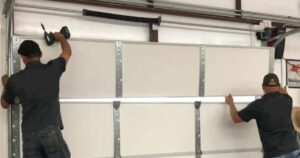Hand held laser welding machines are revolutionizing the metal fabrication industry, providing unmatched precision, speed, and ease of use. Whether you’re a small business owner or running a large-scale manufacturing facility, understanding hand held laser welding machine price is critical to making an informed investment. In this guide, we break down the current market prices, key features, cost-influencing factors, and expert buying tips — all based on real-world data and industry expertise.
💡 Quick Price Overview: Hand Held Laser Welding Machine
| Machine Type | Estimated Price Range (USD) | Typical Power Output | Best For |
|---|---|---|---|
| Entry-Level (Chinese Brands) | $2,800 – $5,000 | 1000W – 1500W | Small workshops, hobbyists |
| Mid-Range (Industrial Grade) | $5,000 – $9,000 | 1500W – 2000W | Medium-sized fabrication shops |
| High-End (Premium Brands) | $10,000 – $20,000+ | 2000W – 3000W+ | Automotive, aerospace, shipbuilding |
🔍 Why Are Prices So Different?
Several factors contribute to the price variation of hand held laser welding machines:
🔧 1. Power Rating (Wattage)
-
1000W: Best for thin stainless steel or aluminum sheets.
-
1500W–2000W: Versatile for mid-thickness parts up to 4–6 mm.
-
3000W+: For high-speed, deep penetration welding tasks.
🌍 2. Country of Origin
-
Chinese Brands: Competitive pricing, mass production, decent quality.
-
European/Japanese Brands: Higher precision, durability, and safety certifications.
🧰 3. Included Accessories
Some units include:
-
Wire feeder
-
Laser protective goggles
-
Cooling system (internal/external chiller)
-
Custom nozzles
These additions can raise the base price significantly.
📋 4. Laser Source Type
-
IPG (Germany): Highly reliable, long-lasting, more expensive.
-
Raycus/MAX/JPT (China): Cost-effective, widely used in mid-tier machines.
📘 Top Features to Look for in 2025 Models
Before you buy, ensure the laser welder includes the following:
-
✅ Automatic Wire Feeder Compatibility
-
✅ Water Cooling System
-
✅ Touch Screen Control Panel
-
✅ Multi-Material Support (Stainless, Carbon Steel, Aluminum, Copper)
-
✅ Ergonomic Welding Gun with Safety Lock
-
✅ Real-Time Temperature Control
-
✅ ISO/CE/FDA Certified Components
🤖 Who Should Invest in a Hand Held Laser Welding Machine?
Laser welding is not just for large industries anymore. Here’s who benefits most:
-
Sheet metal fabricators
-
HVAC technicians
-
Automotive body repair shops
-
DIY metal art creators
-
Construction welders
-
Jewelry makers (smaller units)
💬 Common Questions: Answered
❓ How long does a hand held laser welding machine last?
Most industrial-grade models with IPG or Raycus laser sources last between 50,000 – 100,000 working hours with proper maintenance.
❓ Is laser welding better than MIG or TIG?
Yes, in many applications:
-
Less distortion
-
No filler required for many joints
-
Cleaner finish
-
Up to 4x faster
However, it may not be ideal for very thick or highly reflective metals unless you invest in a high-wattage system.
❓ What’s the power consumption?
-
A typical 1500W laser welder consumes 2.5 – 4 kW/hr, depending on cooling system and usage.
❓ Does it require skilled labor?
Basic training is needed, but hand held systems are designed for ease of use, often featuring intuitive controls and automation.
📊 Power vs Price Comparison Table
| Power Output | Estimated Price | Max Weld Thickness (Stainless Steel) | Recommended Usage |
|---|---|---|---|
| 1000W | $2,800 – $4,000 | 2.5 mm | Light repair, sheet metal, DIY |
| 1500W | $4,000 – $6,000 | 4 mm | General fabrication, metal doors |
| 2000W | $6,500 – $9,000 | 6 mm | Car parts, machine frames |
| 3000W | $9,500 – $20,000+ | 8–10 mm | Heavy-duty industrial applications |
💡 Expert Buying Tips: Maximize Your Budget
-
Choose modular machines: They allow upgrades (e.g., laser source) without replacing the entire system.
-
Check for after-sales support: Especially critical for imported machines.
-
Compare laser sources: IPG > Raycus > MAX, in terms of lifespan and consistency.
-
Evaluate warranty: A good manufacturer offers 1–2 years warranty on parts and labor.
-
Request live demos: If available, request test welding samples before purchase.
📉 Hidden Costs You Should Know
When budgeting, don’t forget these often overlooked expenses:
-
Shipping and taxes
-
Chiller or cooling system if sold separately
-
Maintenance tools and accessories
-
Operator training (if required)
-
Laser safety equipment (goggles, barriers)
⚠️ Mistakes to Avoid
-
Don’t buy based on price alone — low-cost machines may lack safety certifications.
-
Avoid mismatched power — underpowered lasers can’t handle demanding jobs.
-
Skipping training — even a smart machine needs a trained operator to optimize output.
-
Forgetting spare parts — ensure the supplier offers replaceable components locally.
🎯 Best Use Cases by Industry
| Industry | Welding Needs | Recommended Power |
|---|---|---|
| HVAC | Stainless ducting, mild steel brackets | 1000W – 1500W |
| Automotive | Exhausts, chassis joints, panels | 1500W – 2000W |
| Aerospace | Aluminum/titanium alloy parts | 2000W – 3000W |
| Jewelry/Accessories | Fine metal fusion, gold/silver | 1000W (low-pulse) |
| Kitchen Equipment | High-polish stainless steel | 1500W – 2000W |
📚 Definitions for Beginners
-
Fiber Laser Source: The laser beam is generated via fiber optics — high-efficiency, low maintenance.
-
Hand Held Torch: Ergonomic welding head that the operator controls manually — great for irregular shapes.
-
Chiller: External unit that cools the laser source during operation, increasing longevity.
-
Filler Wire Feeder: Automatically feeds metal wire during welding for thicker joints.
🔍 Featured Snippet Optimizer (FAQ Snippets)
Q: How much does a hand held laser welding machine cost in 2025?
A: Prices range from $2,800 to over $20,000 depending on power, brand, and included features.
Q: What wattage is best for a hand held laser welder?
A: 1500W is ideal for general metal fabrication, while 2000W+ is suited for heavy-duty industrial work.
Q: What is the lifespan of a fiber laser welding machine?
A: High-quality machines last between 50,000 to 100,000 hours with proper maintenance.
Q: Is a hand held laser welder worth the investment?
A: Yes, it increases welding speed, reduces labor cost, and provides high-quality welds with minimal distortion.

